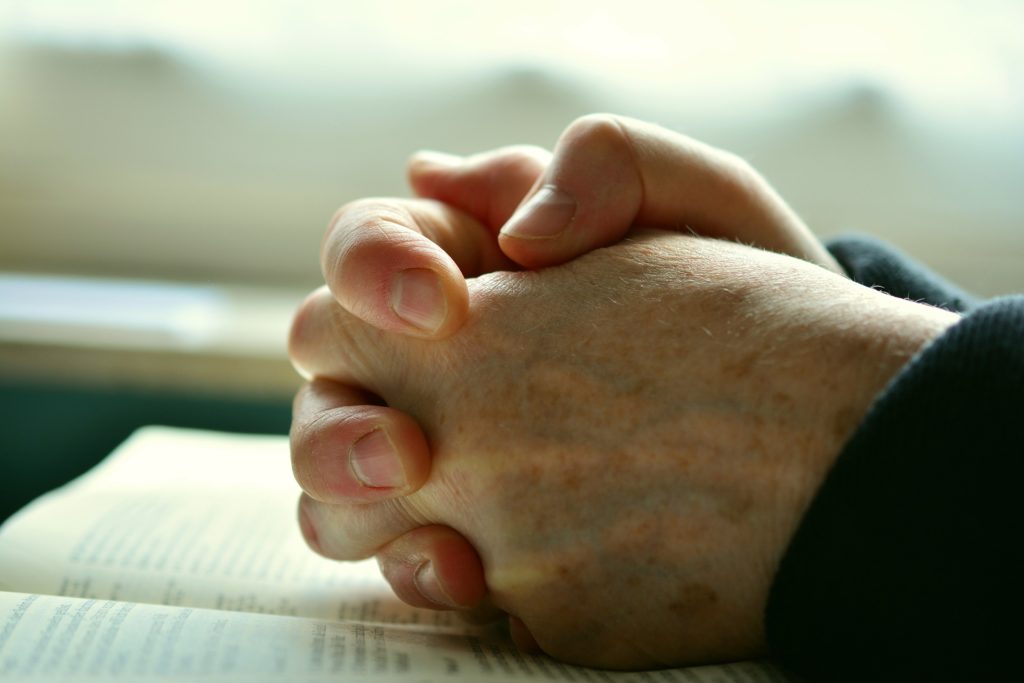
Praying Always (Luke 18:1-8)
Prayer must be an important part of our lives.
Prayer played an important role in Jesus’s life. Jesus prayed while the Spirit descended upon him in the form of a dove (Lk 3:21). Jesus prayed all night before choosing his disciples (Lk 6:12-13). Jesus had been praying when Peter made his great confess (Lk 9:18). Jesus went upon the Mount of Transfiguration to pray (Lk 9:28).
Let’s examine Luke 18:1-8 to see what Jesus teaches us about prayer.
Men Must Pray, v 1
Man must pray and not lose heart. Jesus told his disciples that he expects them to pray. “Losing heart” refers to become discouraged and giving up. Jesus is telling us to be persistent—we should expect God to answer our prayers.
The Scriptures teach that we must pray. Matthew 26:41. Ephesians 6:18. Philippians 4:6. Colossians 4:2. 1 Thessalonians 5:17. We cannot ignore these passages—it is a sin not to pray. Are you praying?
We must pray without losing heart. When we face difficulties, prayer must be the first thing we do. When we face difficult decisions, prayer should be the first thing we do.
Man Must Pray Persistently, vv 2-8
In a certain city was a judge who feared neither God nor man. This judge is more than likely a Roman judge, for Jewish courts were comprised of three judges. This judge neither feared God nor man. The idea is that this judge was out to fill his own pockets. This man accepted bribes, and unless one could afford a bribe this judge would do nothing.
A widow came and asked him for justice. This widow was in a horrible situation. She had no money with which she could bribe the judge. She was all alone in a man’s world. She was all alone in a man’s world. She had been persecuted in some way by her adversary. This widow asked the judge to avenge a wrong committed against her.
The judge would not seek justice for the woman.
The woman continued to come and asked the judge for justice. The judge decided that although he neither respected man or God, he would give in to the widow so she would stop coming to him. The judge did not want to be bothered by the woman’s continual coming.
We can learn much from this widow—we must become like her in our prayer lives.
We cannot take matters into our own hands.
This widow did not attempt to avenge herself; she turned to the one who could give her justice. When individuals wrong us, we cannot avenge ourselves. We need to pray and allow God to avenge us. Romans 12:19.
We must be specific when we pray.
The widow came and asked the judge for justice; she knew what she needed. When we pray, we must know what we need. What are you asking God for?
We must not give up in our prayers.
When Peter was in prison, “constant” prayer was made for him (Acts 12:5). When Jesus was in great agony, he prayed more earnestly.
Jesus draws a sharp contrast in the attitude of God and the judge. The judge gave in to the woman so that she would stop bothering him. God answers the prayers of his children, for he cares for them. 1 Peter 5:7. Matthew 7:11.
God shall avenge those who cry out to him.
If God’s people cry out to him, God shall execute justice against those who wrong his people. God will answer his children’s prayers according to his perfect will. John 14:14. 1 John 3:22.
God bears long with his children.
God doesn’t answer prayers on our time schedule; he does so on his. 2 Peter 3:9. The context of 2 Peter 3 has to do with the Lord’s Second Coming. However, the principle is the same—God is not slack concerning his promise.
God shall avenge his people speedily. God will avenge his people without warning.
When Jesus returns will he find faith on the earth? Jesus means, “When I return, will I find people praying?” Will Jesus find you in a life of prayer when he returns?
This sermon was originally preached by Dr. Justin Imel, Sr., at the Owingsville church of Christ in Owingsville, Kentucky.





